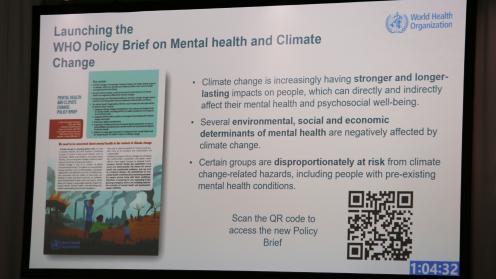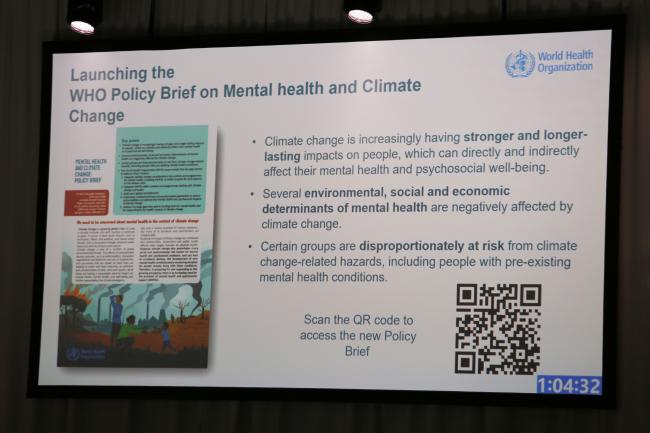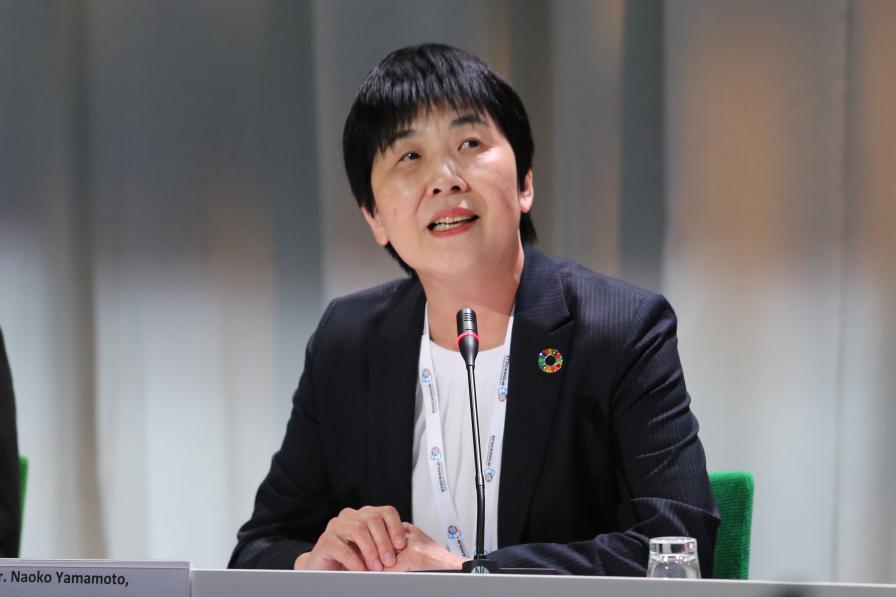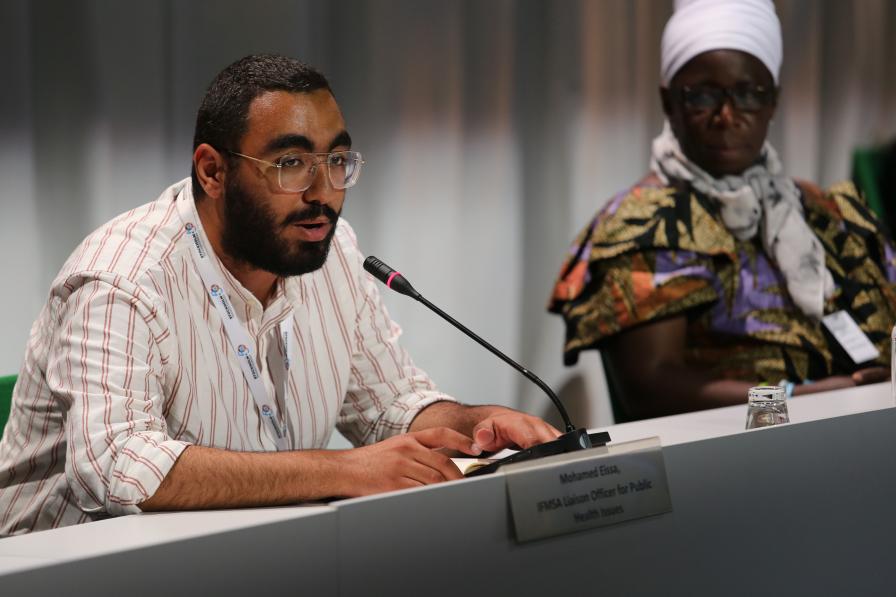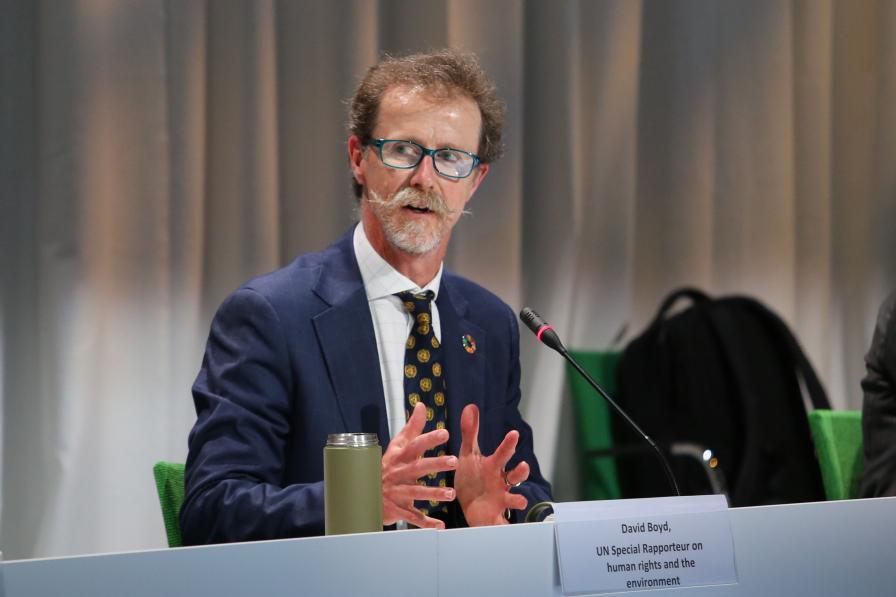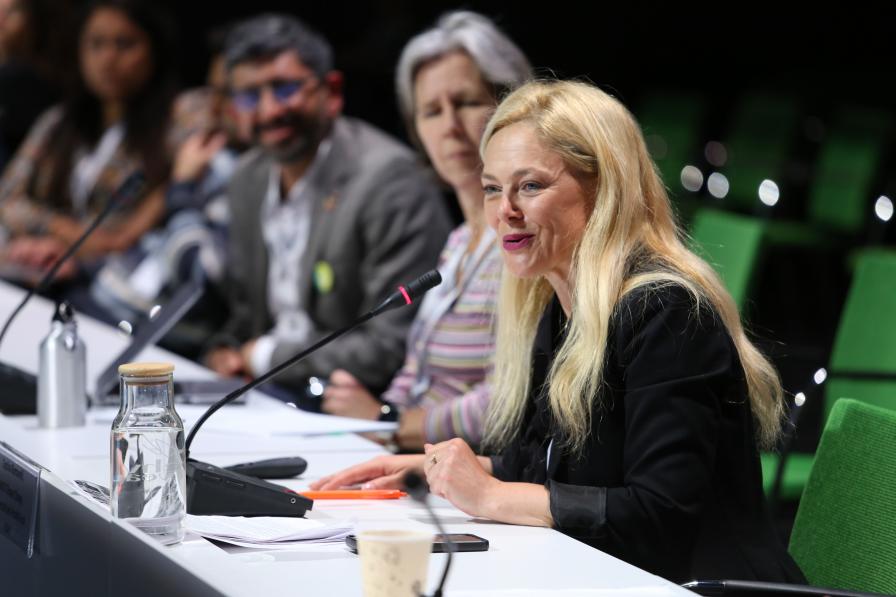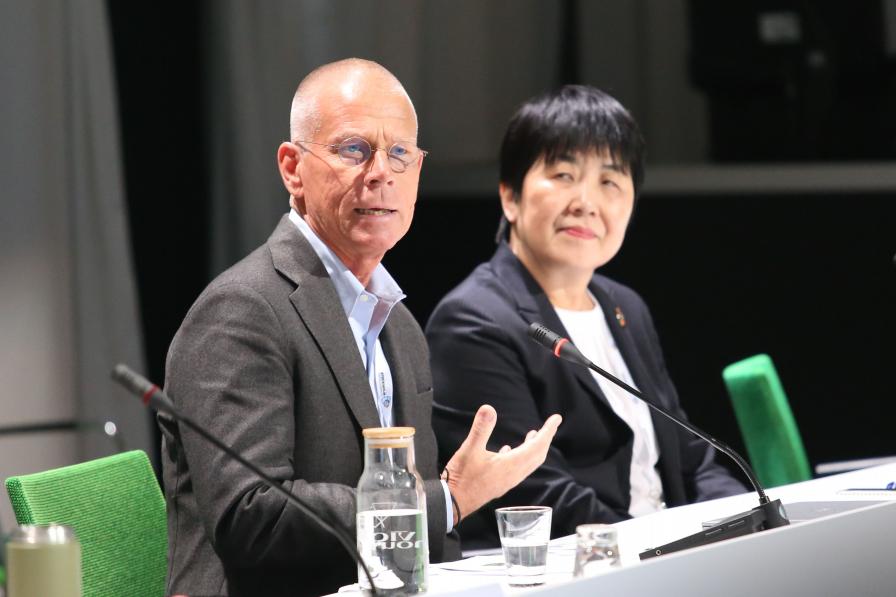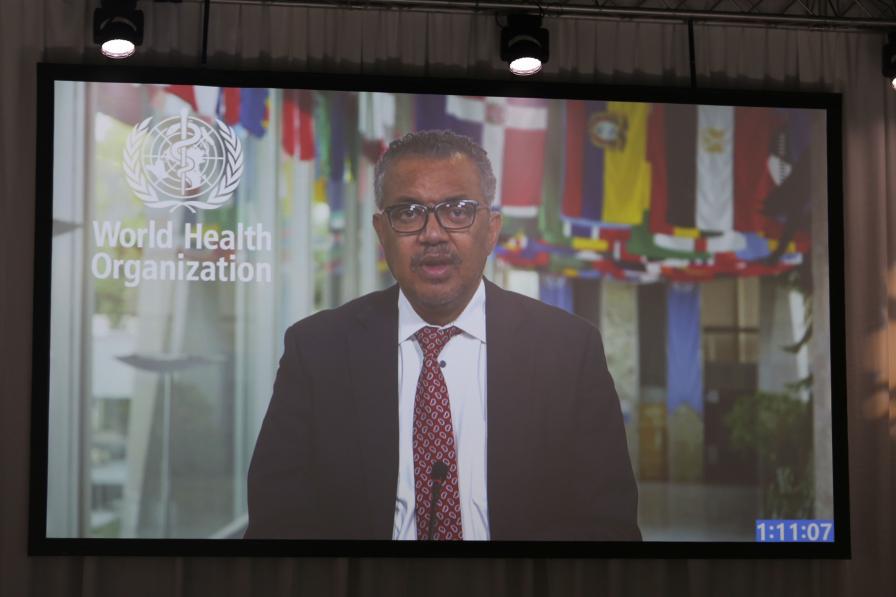About
The UN resolution deciding that everyone has a right to a clean and healthy environment was discussed as a game changer, with the potential to hold governments accountable for addressing pollution, climate change, and ecological destruction.
Organized by: World Health Organization (WHO), Office of the United Nations High Commissioner for Human Rights (UN OHCHR), UN Framework Convention on Climate Change (UNFCCC), UN Development Programme (UNDP), International Federation of Medical Students Associations, and Karolinska Institutet
This event discussed the intersection between the human right to health, the environment, and sustainable development. During the event, WHO launched its new policy brief, titled, “Mental Health and Climate Change.” Many speakers emphasized youth have experienced significant mental health issues as a result of climate change. The UN Human Rights Council resolution deciding that everyone has a right to a clean and healthy environment was discussed as a game changer, with the potential to hold governments accountable for addressing pollution, climate change, and ecological destruction.
Opening the event, co-moderator Cristina Romanelli, WHO, highlighted the global pandemic has reminded us that human health must go hand in hand with climate action. Maria Neira, WHO, co-moderated the event.
Tedros Adhanom Ghebreyesus, Director-General, WHO, announced the launch of the policy brief on mental health and climate change and noted that, as climate change has a longer lasting impact on people, their mental health and social well-being is directly and indirectly affected. He stressed that every sector has a role to play in addressing climate change.
Romanelli reported that the policy brief includes five recommendations: integrate climate change considerations into policies and programmes for mental health; integrate mental health and psychosocial support within policies and programmes dealing with climate change and health; build on global commitments; implement multisectoral and community-based approaches to reduce vulnerabilities and address the mental health and psychosocial impacts of climate change; and address the large gaps that exist in funding both for mental health and for responding to the health impacts of climate change.
Naoko Yamamoto, Assistant Director-General for Universal Health Coverage and Healthier Populations, WHO, called attention to the WHO Manifesto for a healthy and green recovery from COVID-19 and its six prescriptions for recovery from the pandemic, noting impacts include mental health challenges that need to be addressed.
Anders Nordström, Swedish Ministry for Foreign Affairs, stressed that the vaccine is not the only requirement to recover from the pandemic, given that the pandemic has revealed a lack of resilience in societies. He recalled that the SDGs provide an integrated set of goals, which leads to a focus on systems instead of sectors, as well as a focus on global development rather than development aid.
David Boyd, UN Special Rapporteur on human rights and the environment, said the UN resolution deciding that everyone has a right to a clean and healthy environment has the potential to change our world. Noting that the UNFCCC and Convention on Biological Diversity do not incorporate accountability mechanisms, he highlighted examples from around the world in which courts have used rights resolutions to hold actors to account to preserve a healthy environment. In response to the UN resolution recognizing the right to clean water and sanitation, for example, he said several countries added the right to water in their constitutions and other countries adopted new laws.
Rosamund Kissi-Debrah, Co-Founder, Ella Roberta Family Foundation, discussed her daughter’s death due to air pollution and said she hoped that children’s rights to clean air will be at the center of UNFCCC COP 27. She said it is no surprise that areas with more air pollution have experienced more COVID-19 deaths.
Mohamed Eissa, International Federation of Medical Students Associations, discussed his organization’s work to build the capacity of medical students to address the climate change crisis, including through advocacy. He noted that members of his association witness the interlinkages between climate change and health, including mental health.
Kazi Zubair Hossain, World Organization of the Scout Movement, noted efforts to build the power of youth to lead. He called for making funding for youth more diverse and accessible, ensuring youth have meaningful representation, and trusting and listening to youth without assuming what they need. He also noted an increase in youth seeking mental health support.
Summarizing the discussion, Ole Petter Ottersen, Karolinska Institutet, emphasized the need to bring a wide variety of perspectives to the table and to recognize that the pandemic exacerbated inequalities. He highlighted the need to take into account political incentives when making policy recommendations, and suggested translating the ideas discussed into policy and governance structures. He said universities should not just be witnesses to what has happened, but should also translate knowledge into new policies.
Contact:
Marina Maiero | maierom@who.int
More information:
To receive free coverage of global environmental events delivered to your inbox, subscribe to the ENB Update newsletter.
